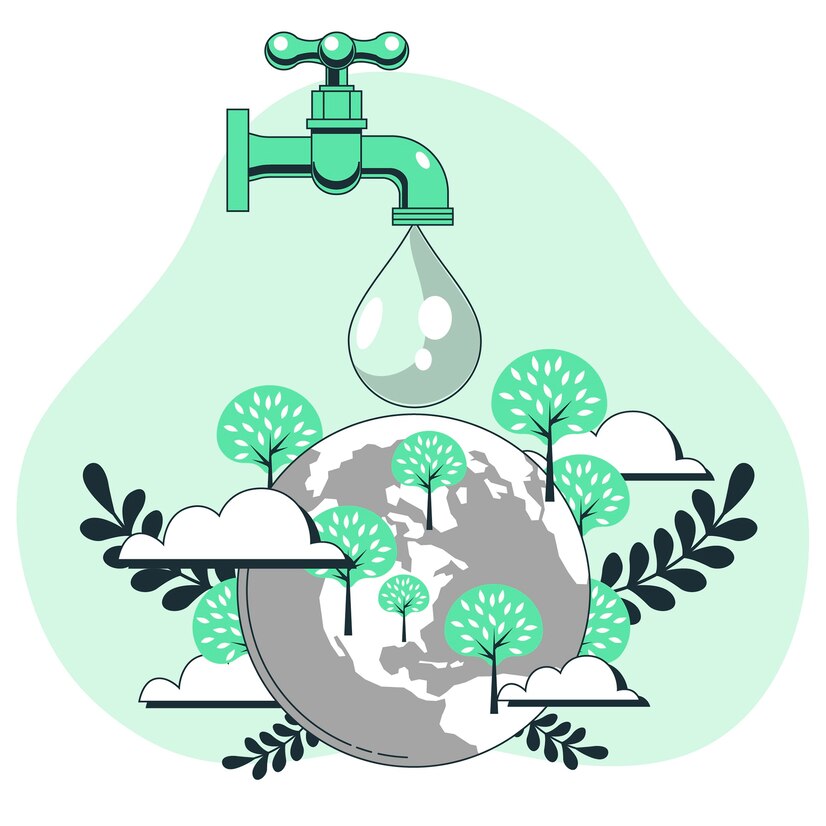Introduction
Water, the elixir of life, sustains all living beings on Earth. From quenching our thirst to nourishing crops and supporting industrial processes, water plays a vital role in every aspect of our lives. However, as the global population grows and demand for water increases, the importance of understanding and conserving water consumption becomes more critical than ever before. In this blog series, we’ll explore the intricacies of water consumption, discuss the importance of conservation, and provide actionable tips for promoting sustainability in our water usage habits.

The Importance of Water Conservation
Water, despite covering around 70% of the Earth’s surface, is a finite resource. While the planet’s water cycle continuously replenishes freshwater sources, the rate of consumption often exceeds the rate of replenishment, leading to water scarcity in many regions. This scarcity not only threatens ecosystems but also jeopardizes access to clean water for communities around the world.
Consider regions like California, where prolonged droughts have strained water supplies, leading to water rationing and agricultural losses. Similar challenges are faced by communities in arid regions of Africa, Asia, and beyond, highlighting the urgent need for water conservation efforts globally.
Factors Influencing Water Consumption
Water consumption is influenced by various factors, including residential, industrial, and agricultural usage. In our daily lives, activities such as bathing, washing dishes, and watering lawns contribute to residential water consumption. Likewise, industries rely heavily on water for manufacturing processes, cooling systems, and product development. Agriculture, as the largest consumer of freshwater globally, accounts for a significant portion of water usage, primarily for irrigation to sustain crop production.
Understanding these factors is crucial for devising effective strategies to reduce water consumption and promote sustainability across different sectors.
Strategies for Water Conservation
Fortunately, there are numerous strategies and technologies available to help us conserve water in our daily lives and industries. Simple actions like fixing leaks, installing water-efficient appliances, and practicing mindful water usage can significantly reduce residential consumption. In agriculture, adopting drip irrigation systems, implementing soil moisture sensors, and practicing crop rotation can help optimize water usage and minimize waste.
Furthermore, industries can invest in water-saving technologies, implement recycling and reuse systems, and adopt sustainable production practices to reduce their water footprint and promote environmental stewardship.
Benefits of Water Conservation
The benefits of water conservation extend far beyond environmental preservation. By conserving water, we not only safeguard ecosystems and biodiversity but also secure access to clean water for future generations. Economically, water conservation can lead to cost savings through reduced utility bills, lower maintenance expenses, and increased efficiency in industrial processes. Moreover, promoting water conservation fosters community resilience, enhances social equity, and strengthens the foundation of sustainable development.
Challenges and Solutions
Despite the undeniable benefits of water conservation, several challenges hinder progress in this area. These challenges include lack of awareness, inadequate infrastructure, competing interests, and policy constraints. Addressing these barriers requires a multifaceted approach involving education, investment, collaboration, and policy reform.
By raising awareness about the importance of water conservation, investing in water-saving technologies and infrastructure, fostering collaboration among stakeholders, and enacting supportive policies, we can overcome these challenges and pave the way for a more sustainable water future.
Conclusion
In conclusion, understanding water consumption and promoting conservation efforts are essential steps towards building a more sustainable and resilient future. By adopting water-saving practices in our daily lives, industries, and agriculture, we can reduce our water footprint, mitigate water scarcity, and preserve this precious resource for generations to come. Join us in our journey to embrace water conservation and contribute to a healthier, more sustainable planet. Together, we can make a difference.
